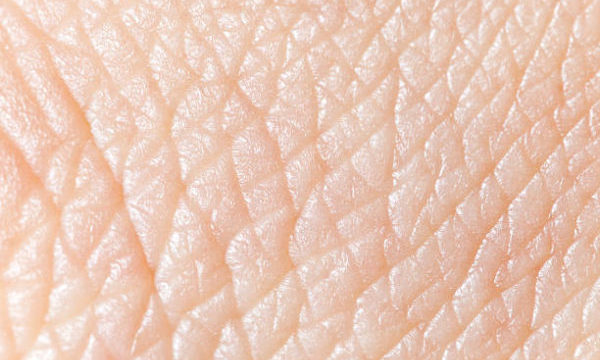People rarely think about how fascinating human skin really is. It is an essential part of our body, protecting it from external influences. That’s why it’s important to take care of it, even though skin regenerates, because maintaining healthy skin not only contributes to overall well-being but also enhances one’s appearance.
Facts About Human Skin:
- On average, the total surface area of an adult’s skin is about two square meters.
- Every minute, approximately 40,000 skin cells fall off the human body.
- Skin accounts for about 15-16% of a person’s total body weight.
- The skin of newborns is lighter than that of adults, but it darkens slightly within a few days due to increased pigmentation from blood circulation.
- Shed skin cells make up a significant portion of household dust, contributing to 50-70% of it.
- Fingerprints are designed by nature to improve the grip of the palms on surfaces.
- The thickest skin is found on the soles of the feet, where it can be up to 2 millimeters thick, while the thinnest skin is on the eyelids, sometimes less than 0.2 millimeters thick.
- Skin plays a crucial role in thermoregulation, helping the body cool down in the heat and retain warmth in cold weather.
- Wrinkles form because, with age, the skin loses elasticity and becomes drier.
- Scar tissue that forms on damaged skin lacks sweat glands and hair follicles.
- The top layer of skin renews itself in just under a month.
- Approximately 1 billion bacteria of about 1,000 different species live on the skin.
- Skin color is determined not by the amount of melanin in the skin, but by its activity, as the amount is roughly the same in all people.
- Albinos have very light skin because they lack melanin.
- Almost everyone has at least one mole on their body, though most people have several, sometimes many.
- Freckles tend to fade during the winter months as the production of melanin decreases during this time of year.
- The most important vitamins for skin health are A, C, D, and E.
- Over a lifetime, the skin renews itself about a thousand times.
- During this time, we lose an average of 16-18 kilograms of dead skin cells.
- Under normal conditions, human skin excretes about half a liter to a liter of sweat per day, but in hot weather, moisture loss can increase five to ten times, so it’s important to drink more water in the heat.
- About one-third of all the blood in the human body is contained in the skin.
- The collagen content in the skin decreases by about 1% each year.
